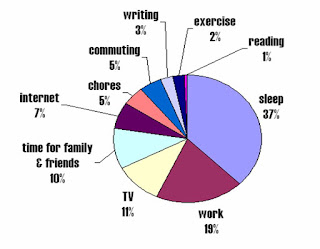When will I be ready?
The newspapers today covered the latest Population Trends report, showing that the rate of singlehood is on the rise, and that those who do get married, tend to get married later. By comparison, I got married pretty early, at 26. My wife was only 24. This in turn means our kids are generally more grown up compared to the majority of our peers. When younger friends or colleagues find out about this, one question I sometimes get asked is, how did you know when you're ready to be married? Or ready to have kids?
My answer is usually this. I was never really ready. Once you're out of puberty, people stop maturing merely through the passage of time. We mature through the experience of events. Whether we're 20 or 50, if we're not yet married, then we're not ready to be married. If we're not yet a parent, we're not ready to be a parent. Like swimming or cycling, we can buy the floats, the trunks, the bicycles and helmets, but the only thing that will get us ready is to actually jump in the pool or get on the bicycle. The mere passage of time won't prepare us to swap the independence of singlehood for the partnership of marriage, or the "us-time"of couplehood for the "all-of-us-time" of parenthood. Having gone through it, I can testify that the swap is entirely worth it. But was I ready for it? No, not really, until I'd actually done it.
I think that's a lesson that applies to most of life. I was with a colleague the other day, and he shared a similar sentiment. He was saying, when you go to sleep at night and then you wake up the next morning and put together breakfast, maybe you expend 6-10 hours. But from an experiential point of view, all you know is, you went to sleep, and then you woke up and had breakfast. The mere passage of time doesn't give you any more experience.
That's why it's entirely possible for someone to be 40, 50, 60 or 70 and still be immature. To gain in age but not in wisdom. The man legendary for wisdom, King Solomon, once succinctly laid out a two-word plan for wisdom: "The beginning of wisdom is this: get wisdom. Though it cost you all you have: get understanding. Cherish her, and she will exalt you; embrace her, and she will honour you. Proverbs 4:7-8.
So what's one way to "get wisdom"? Well, following on from my colleague's example - don't just sleep through life! Not literally sleep less obviously - but to live meaningfully. Not just to minimise "nothing" time, but also to minimise extraneously meaningless activity. Henry David Thoreau famously said, "I went to the woods because I wished to live deliberately, to front only the essential facts of life, and see if I could not learn what it had to teach, and not, when I came to die, discover that I had not lived."
What does living deliberately look like? I think one essential element is this - start right by building good habits around the "essential facts of life" and reducing the waste. These good habits will enable us to finish strong. At my cell group yesterday, we were discussing the importance of establishing good habits - to make time to know the word. To pray. To love others by giving them our time. To serve the poor. This is especially important to establish when we are taking the first steps of faith. Then a new friend at our cell group asked me a great question. Why is it so important to start well? Perhaps put another way - can't we grow into it?
Well for what it's worth, here's what I think. When we start something new, we really want to get things right. It's a chance to set what "normal" looks like. Here's a small example. When my wife and I got married, we decided, joint accounts for everything. We're in it together, and there's no turning back, no break clause. And I really believe that good start helped to set that standard of "normal" for our marriage. I think it would have been much harder to change things, say 5 years later, because by then the"normal" dial would have been fixed at some other setting. So, why settle for less than an amazing normal? Let your normal be amazing from the start!
Secondly, look, everyone knows that life is full of challenges and can wear us down. If we don't set things right at the start, the chances are that we'll never get round to putting them in place. It's the old "big rocks in a jar" story. If we put in our good habit "big rocks" in the finite space of our life "jar" at the start, then we find that we can fit the less important "pebbles" and the humdrum "sand" that life inevitably throws at us, in the spaces around the "big rocks". But if we let our life jars get filled with sand and pebbles first, then those big rocks can never fit in.
My resolution? Look at my life jar. Be thankful for the big rocks in there. Examine if there are there any pebbles or sand in there that I need to throw out and make a fresh start, and put in a big rock that needs to be in there! It's going to be harder now to dig out the sand and pebbles than if I had done it right the first time - but better now than later!
Have a meaningful weekend :)









Comments